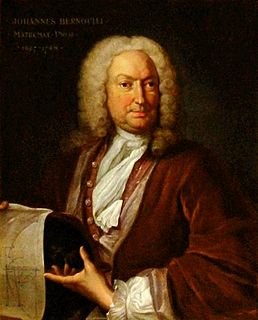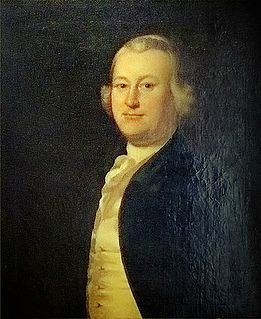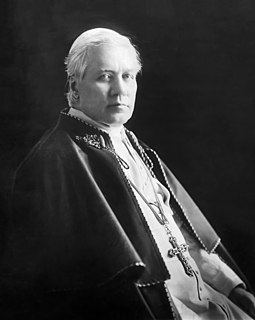A Quote by Hermann von Helmholtz
The law in question asserts, that the quantity of force which can be brought into action in the whole of Nature is unchangeable, and can neither be increased nor diminished.
Related Quotes
The total quantity of all the forces capable of work in the whole universe remains eternal and unchanged throughout all their changes. All change in nature amounts to this, that force can change its form and locality, without its quantity being changed. The universe possesses, once for all, a store of force which is not altered by any change of phenomena, can neither be increased nor diminished, and which maintains any change which takes place on it.
There is in fact a true law namely right reason, which is in accordance with nature, applies to all men and is unchangeable and eternal. ... It will not lay down one rule at Rome and another at Athens, nor will it be one rule today and another tomorrow. But there will be one law eternal and unchangeable binding all times and upon all peoples.
The essences of the Gods never came into existence (for that which always is never comes into existence; and that exists for ever which possesses primary force and by nature suffers nothing): neither do they consist of bodies; for even in bodies the powers are incorporeal. Neither are they contained by space; for that is a property of bodies. Neither are they separate from the first cause nor from one another, just as thoughts are not separate from mind nor acts of knowledge from the soul.
Government is founded not on force, as was the theory of Hobbes; nor on compact, as was the theory of Locke and of the revolution of 1688; nor on property, as was the assertion of Harrington. It springs from the necessities of our nature, and has an everlasting foundation in the unchangeable will of God.
I worship impersonal Nature, which is neither "good" or "bad", and who knows neither love nor hatred. I worship Life; the Sun, Sustainer of life. I believe in the Law of everlasting struggle, which is the law of life, and in the duty of the best specimens of our race - the natural élite of mankind - to rule the earth, and evolve out of themselves a caste of supermen, a people 'like unto the Gods'.
A general “law of least effort” applies to cognitive as well as physical exertion. The law asserts that if there are several ways of achieving the same goal, people will eventually gravitate to the least demanding course of action. In the economy of action, effort is a cost, and the acquisition of skill is driven by the balance of benefits and costs. Laziness is built deep into our nature.
Newton's great generalization, which he called the "third law of motion," was that "Action and reaction are always equal to each other;" and that law has been one of the most pregnant of all truths about the mystery of force;--one of the brightest windows through which modern eyes have looked into the world of Nature.
The "establishment of religion" clause of the First Amendment means at least this: Neither a state nor the Federal Government can set up a church. Neither can pass laws which aid one religion, aid all religions, or prefer one religion over another. Neither can force nor influence a person to go to or to remain away from church against his will or force him to profess a belief or disbelief in any religion.
...the great movement of apostasy being organized in every country for the establishment of a One-World Church which shall have neither dogmas, nor hierarchy, neither discipline for the mind, nor curb for the passions, and which, under the pretext of freedom and human dignity, would bring back to the world (if such a Church could overcome) the reign of legalized cunning and force, and the oppression of the weak, and of all those who toil and suffer. [...] Indeed, the true friends of the people are neither revolutionaries, nor innovators: they are traditionalists.

































